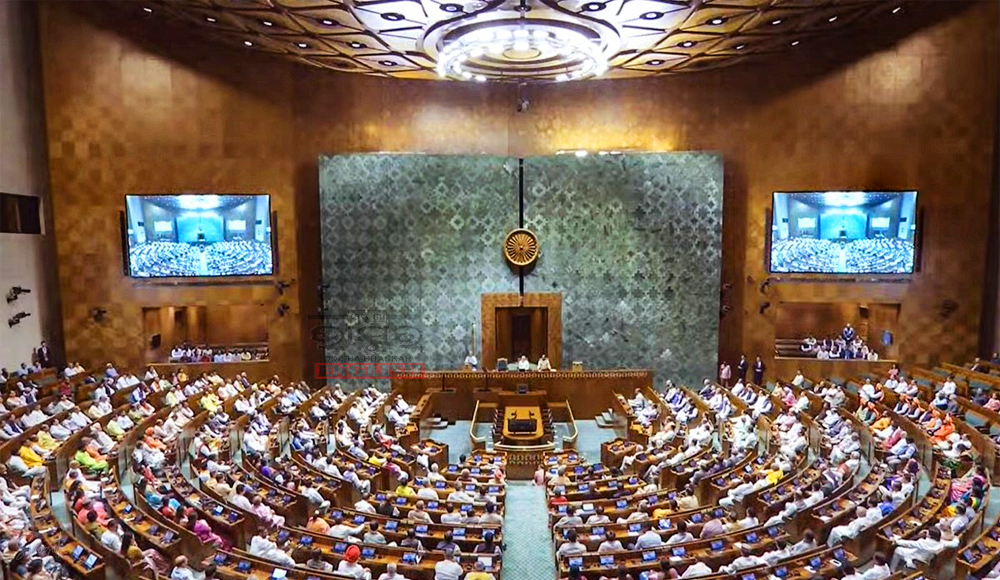New Delhi: The Lok Sabha on Friday approved a motion appointing 21 members to a joint parliamentary committee tasked with reviewing the Waqf (Amendment) Bill, 2024. This follows the Centre’s proposal to send the Bill to the committee for further scrutiny.
The committee will also include 10 Rajya Sabha members and is expected to submit its findings by the end of the first week of the next Parliament session. The appointed members are Jagdambika Pal, Nishikant Dubey, Tesjasvi Surya, Aparajita Sarangi, Sanjay Jaiswal, Dilip Saikia, Abhijit Gangopadhyay, DK Aruna, Gaurav Gogoi, Imran Masood, Mohammad Jawed, Mohibbullah, Kalyan Banerjee, A Raja, Lavu Krishna Devarayalu, Dileshwar Kamait, Arvind Sawant, Mahtre Balya Mama Suresh Gopinath, Naresh Ganpat Mhaske, Arun Bharti, and Asaduddin Owaisi.
The motion was presented by Parliamentary Affairs Minister Kiren Rijiju.
The Waqf (Amendment) Bill, 2024, introduced on Thursday, has sparked debate among opposition members who have raised concerns about its potential impact on the federal structure and religious autonomy. Congress MP KC Venugopal labelled it an “attack on the federal system,” while AIMIM MP Asaduddin Owaisi argued that the bill infringes on constitutional rights under Articles 14, 15, and 25.
NCP MP Supriya Sule has called for the bill’s withdrawal or review by a standing committee, and RSP MP NK Premachandran warned of potential judicial challenges. In response, Rijiju defended the bill, which he has renamed the “United Waqf Act Management, Empowerment, Efficiency, and Development Act” or “UMEED.” He stated that the Bill does not breach religious freedoms as per Articles 25 to 30 of the Indian Constitution, citing Supreme Court rulings that exclude Waqf Boards from these protections.
The bill aims to reform the management of State Waqf Boards, enhance property registration and survey processes, and remove encroachments. It also proposes repealing the Mussalman Wakf Act, 1923, and renaming the Waqf Act, 1995, to the Unified Waqf Management, Empowerment, Efficiency, and Development Act, 1995.




Comments are closed.